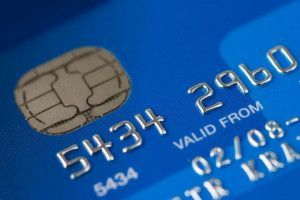Freeing Yourself From Your Financial Shackles

Everyone has a financial history. A lot of us are tied down by financial relationships and parts of our history that can make it hard for us to be as conscientious with our money as possible. Here, we’re going to look at the financial shackles that bind most people today, as well as steps that you can take to get free of them. These steps are directed towards supporting financial health. We all know that so move forward sustainably, whether in business and/or our individual lives, having integrity in our finances is essential. In fact, financial independence isn’t easy to achieve and it often does involve taking on some risk, but it can be important in order to make sure you’re not beholden to financial institutions outside yourself.
Investing in yourself
The biggest shackle that keeps most people chained down in long financial relationships that don’t work in their interest is everyone’s need to work. There is an argument to be made that the current job market is coercive by nature. This is one of the main reasons that so many people want to get away from the standard nine to five. Consider looking at your own potential to
start a business
and take control of both how and when you work and how you spend or invest the money that you make from your own business. This is where much of the risk of becoming financially independent truly comes from.
Making your money work for you
One of the most important steps towards being financially free and not having to rely on any employer or other money institution is to become as self-sufficient as possible. When it comes to your finances, one of the best ways to do that is to have your money put into investments that can grow your wealth over time. If you’re solely working for the money that you own, there is a cap on how much wealth you’re able to create and earn by yourself.
By learning to invest
, you can instead make sure that your money is doing the work for you. Investing in the right assets can see you making returns that can even provide a living through dividends, though it can a lot of time and luck to get to that point.
Optimizing your savings rate
Putting your money into investments is often considered the surest way to wealth, but that doesn’t mean that is where all of your earnings that aren’t spent on necessary expenses should go. Savings do not offer the same kind of potential gains as investments in most markets, but they do offer the chance to have your money slowly grow while providing some protection and liquid assets for you when you need them. Having liquid assets available means you can be more flexible to a financial crisis in your life. As such, you should start saving as soon as possible to ensure you have those protections in place and to help you
take advantage of compound interest
, letting your savings grow significantly larger with enough time.
Don’t let credit errors go unchecked
Debt and credit relationships are another prime example of a long-standing financial relationship that most people do not want to be in and, sometimes, may have had no say of getting into. There are clerical errors all the time that can lead to debts and outstanding balances being assigned to the wrong person. Simple mistakes these may be, but they can have a profound impact on your financial health is not addressed. As such, it’s worth taking the time to
look up your credit report
and to inspect every record that appears on it. You may find that a debt has been assigned to you, or an account with a financial institution has been opened up, but you’re not really responsible for it. You can get these black marks erased from your record if you’re truly not responsible.
Can your debt be discharged?
If you have a debt assigned to you, there are other ways to get rid of it as well. If you’re in the situation that the debt has been fraudulently assigned to you, then you should take a look at
what can a secured party creditor do
to help you discharge that debt. Otherwise, you may be able to have your debt reduced and discharged by negotiating the lender. For instance, you may be able to argue to pay off a lump sum reduced payment to have them take the rest of the debt off the table. In other situations, you may be able to negotiate to have the debt payments reduced and paid over a longer period of time to make it easier to keep up with payments.
Cutting up your credit cards
Once you have your debts paid off, then it may be time to consider closing the loop on those open lines of credit entirely. A lot of people can find the temptation of an open overdraft or a credit card too hard to resist in the long-term. However, if you are going to
cancel your credit cards
and close open lines of credit, you have to do it with care. For instance, you should follow the point below to have financial protections in place. If you don’t have any other options, credit can be a useful tool to help you pay off sudden emergency costs, so you should ensure you have those protections so that you don’t have to rely on it. Furthermore, anticipate that closing your credit accounts could lower your credit score to some degree.
Avoiding debt in future
Aside from the protections that we’re going to cover, there are plenty of ways to ensure your financial independence by preventing yourself from getting into debt, otherwise. For instance, one of the most valuable tools in any financially responsible individual’s arsenal is an
app that can track your expenses
and compare them to your planned budget. This can help ensure you don’t step over any lines that could get you into financial trouble and otherwise help you get to learn your spending habits so that you can better correct them in the future.
Consider relocating
Geographic realities can sometimes feel as limited as financial ones. However, though they may not be easy to access, you have just as many choices revolving around your geographic situation as you do your financial one. Relocating could help you achieve financial independence all the sooner. For instance, you could move into a market where your business is better able to take off, or to a place where the costs of living are low enough that you can more easily get rid of debt and start contributing towards your savings.
Protect your finances
As mentioned, to prevent yourself from falling into debt when an emergency cost comes your way, it’s important to have protection for your finances. Some would consider that an insurance policy is the kind of long-standing financial agreement that makes it difficult to attain financial independence, but when it comes to choosing between crippling debt and recurring insurance payments, it’s worth choosing the latter every time. Aside from figuring out
which insurance policies you should be paying for
, you can also put in place an emergency fund. The emergency fund has fallen out of favor lately, as a lot of people have trouble saving enough money to make one. However, if you get a windfall of cash, it’s a good way to make use of it.
While you can’t escape the financial realities of the past and how they influence you today, you can take steps to shake of the shackles that might otherwise keep you from making the proper use of your money for years to come.


